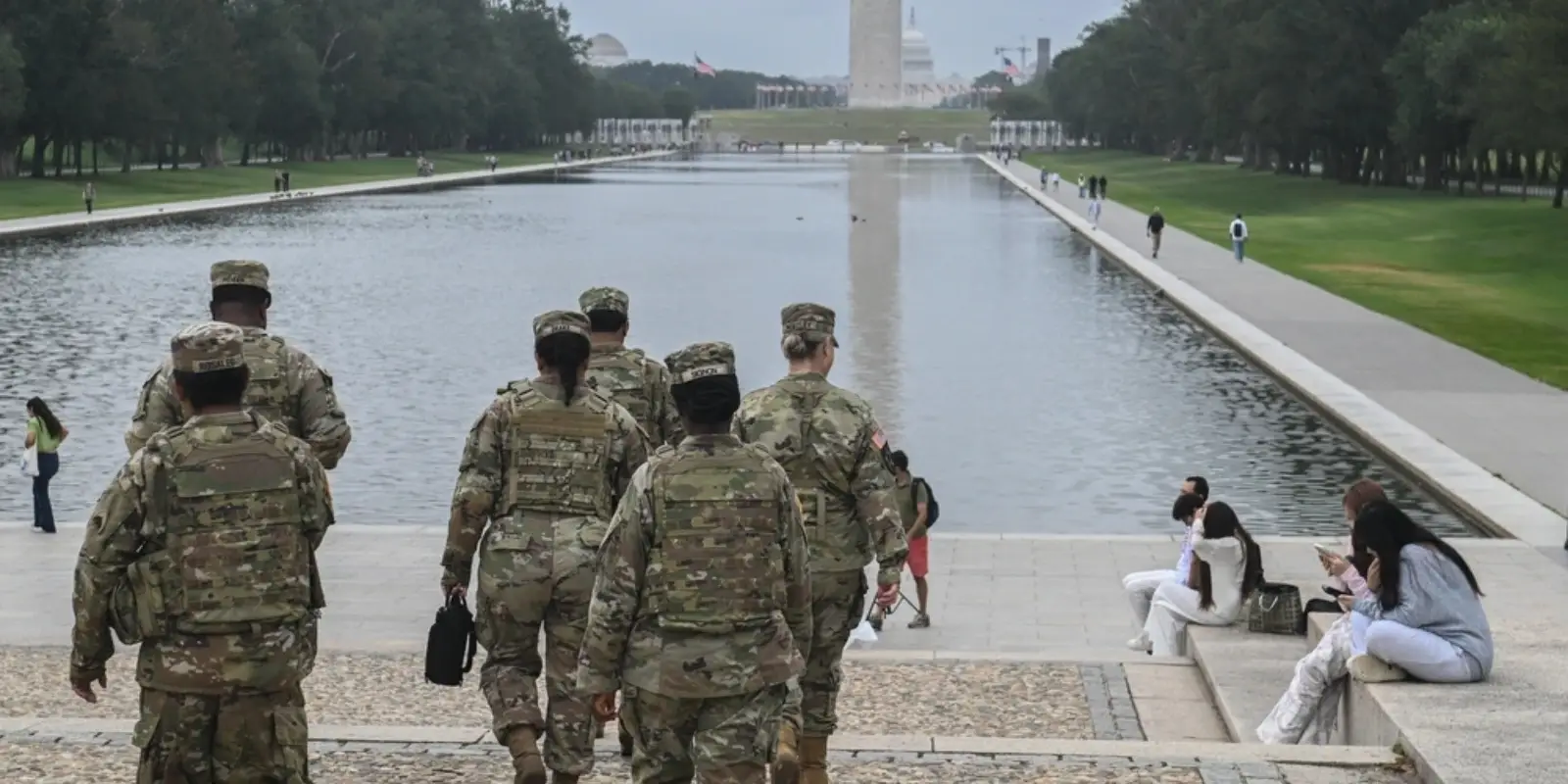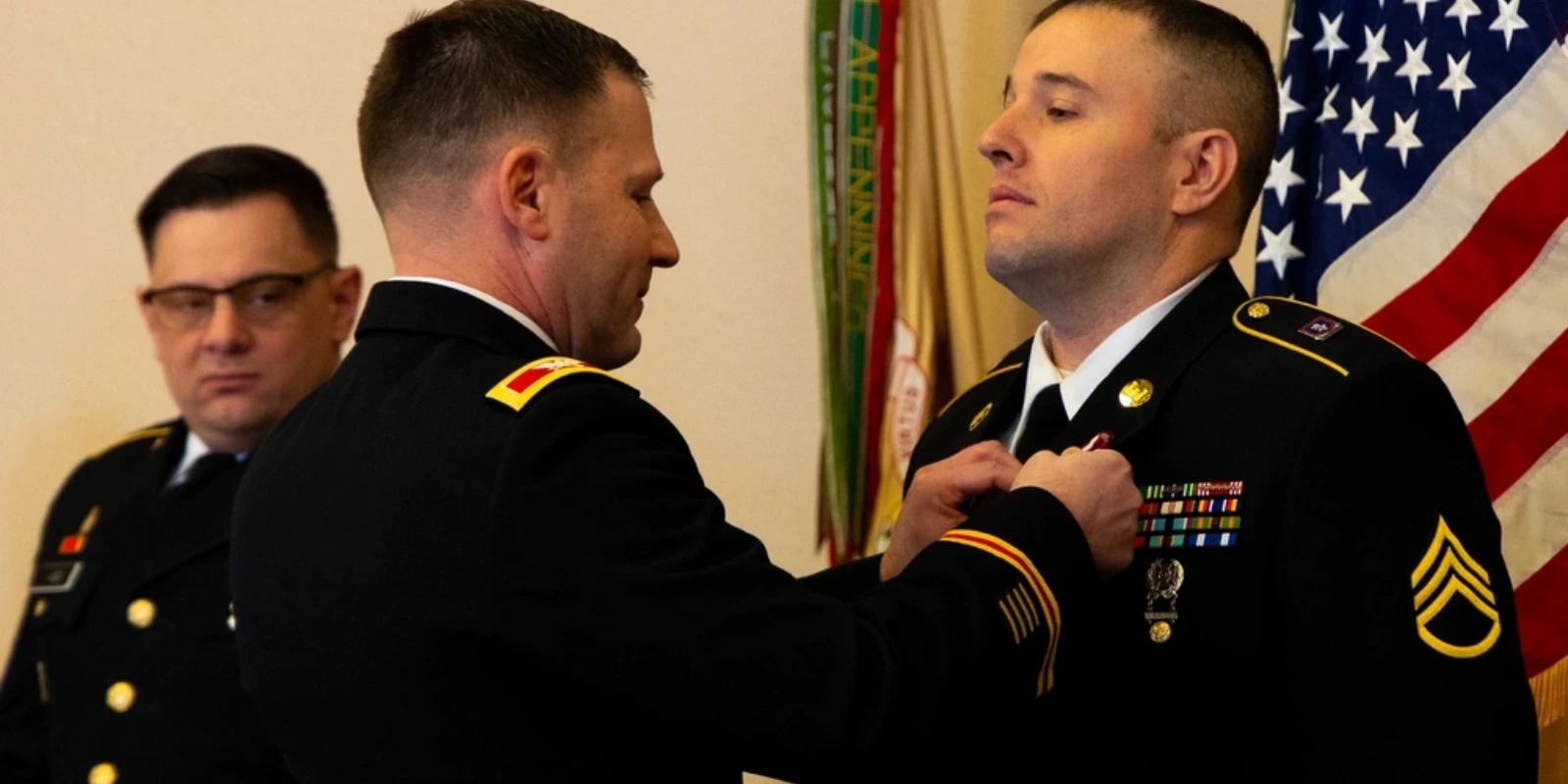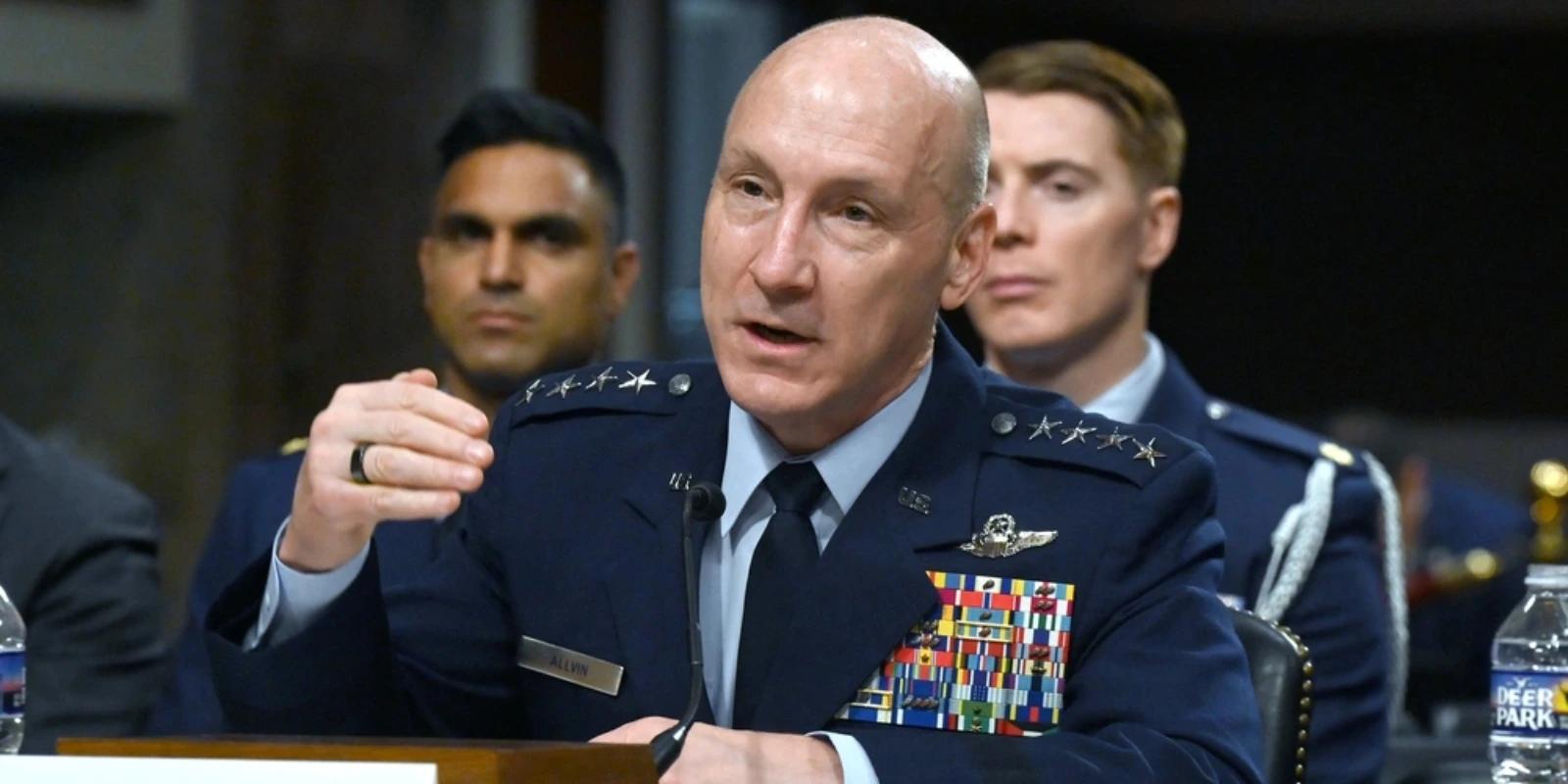In response to President Trump’s executive order, National Guardsmen began showing up in Washington, DC, on August 12, 2025 to help local authorities combat crime and deal with rampant homelessness. To date, more than 2,200 National Guard personnel from D.C., West Virginia, South Carolina, Ohio, Mississippi, Louisiana, and Tennessee are assisting the District and federal government agencies with that mission.
On Sunday, Trump threatened to send National Guardsmen, and perhaps even active duty military personnel, into Chicago and New York to perform the same mission in those “crime ridden” cities. As the result of a testy exchange between Maryland Governor Wes More and Trump, Baltimore may also be added to the growing list of cities that receive policing assistance.
The current deployment of National Guard forces to DC and the proposed deployments to Chicago, New York, Baltimore, and beyond mark a significant shift in the way these forces have historically been employed. Typically, a President would request federalization of a state’s National Guard forces from that state’s governor who serves, effectively, as the Commander-in-Chief of those personnel. In the past, these requests have been made in response to active or imminent civil unrest or natural disasters. That’s not the case in DC, and this is where critics against the deployment have voiced their biggest concerns.
But, Trump may be backing off on those proposed deployments in response to these criticisms and pushback from the affected governors. On Monday, Trump signed an executive order to create a specialized National Guard unit that could be deployed to assist local law enforcement in Washington, D.C., and potentially around the US "in quelling civil disturbances and ensuring the public safety and order whenever the circumstances necessitate." However, he backed off on his proposal to send National Guard personnel to Chicago.
When pressed on Chicago, Trump said,
"I didn't get a request from the governor … Illinois is affected maybe more than anybody else. And I think until I get that request from that guy, I'm not going to do anything about it."
How Are Things Going in DC?
After initially suggesting that National Guard personnel deployed to DC would not be armed, that all changed this weekend. Per a directive issued by Secretary of Defense Pete Hegseth last week, some guardsmen began carrying military-issued handguns and rifles while on patrol in the city.
This new twist has drawn sporadic protests around the district with some calling for an end to the “military occupation" of the nation’s capital. Defense officials sought to allay those fears.
An official statement from the joint task force that has taken over policing in the nation’s capital said that the force should be used, “only as a last resort and solely in response to an imminent threat of death or serious bodily harm.” It said the force is committed to protecting “the safety and wellbeing” of Washington’s residents.
While the operation has just begun, statistics compiled by the DC Metropolitan Police Department (MPD) seem to indicate that crime has subsided slightly in the district. During the first week of the operation, property crimes dropped roughly 19% compared to the week before, and violent crime dipped by about 17%. Those trends varied by types of crimes, however.
Robberies and car break-ins were down by more than 40%, other thefts showed no change and there was a 6% increase in burglary cases and a 14% increase in cases of assault with a dangerous weapon, according to MPD data. There have been two murders since Trump signed his executive order, which is consistent with recent weeks in DC, though no murders have been committed since August 13.
Are Chicago, New York and Baltimore Next?
On Sunday, Trump threatened to expand the DC-style National Guard deployments to Chicago and New York. Baltimore may also be added to the list after Maryland Governor Moore challenged Trump to “walk the streets” of Baltimore with him and discuss public safety.
Trump’s targeting of Chicago didn’t sit well with Illinois Governor J.B. Pritzker.
"The safety of the people of Illinois is always my top priority," Pritzker said in a statement Saturday. "There is no emergency that warrants the President of the United States federalizing the Illinois National Guard, deploying the National Guard from other states, or sending active duty military within our own borders."
Pritzker called the move an attempt to "manufacture a crisis" and an abuse of power. In a written statement, Pritzker said,
"Donald Trump is attempting to manufacture a crisis, politicize Americans who serve in uniform, and continue abusing his power to distract from the pain he is causing working families."
The Illinois Governor added that the state has not received any requests to the federal government asking if assistance is needed, nor have any requests for federal intervention been made by the state.
"We will continue to follow the law, stand up for the sovereignty of our state, and protect the people of Illinois," Pritzker added.
Chicago Mayor Brandon Johnson piled on to his Governor’s message saying,
“These anti-violence programs have a direct impact on our work to reduce crime and violence in Chicago. Sending in the National Guard could destabilize our public safety efforts and would be counterproductive to rebuilding trust between residents and law enforcement.”
Chicago police said Friday homicides are down 31% this year and shootings 36%.
New York Mayor Eric Adams shared similar views about Trump’s proposed deployment of National Guard forces to The Big Apple.
“We don’t need anyone to come in and take over our law enforcement apparatus,” Adams said at a press conference in the Bronx on Tuesday morning. “We have the finest Police Department on the globe."
New York City officials have touted low crime numbers this summer, including drops in murders and gun violence, as well as the overall crime rate.
In the case of Baltimore, Maryland Governor Moore seems to have painted a target on the city’s back.
In a Sunday appearance on Face the Nation, Moore said,
"While the President is spending his time from the Oval Office making jabs and attacks at us, there are people actually on the ground doing the work who know what supports would actually work to continue to bring down crime. But it's falling on deaf ears of the president of the United States.”
Last week, Moore sent Trump a letter inviting the President to attend a public safety walk in Maryland. Moore touted the state's investments in local law enforcement and other efforts to address crime under his administration. In 2025, Baltimore has seen a 22% decrease in homicides from last year, according to the Baltimore Police Department.
As expected, Trump responded to Moore’s invitation by saying,
“Wes Moore’s record on Crime is a very bad one, unless he fudges his figures on crime like many of the other ‘Blue States’ are doing.”
Trump added,
“But if Wes Moore needs help, like Gavin Newscum (sp) did in L.A., I will send in the ‘troops,’ which is being done in nearby DC, and quickly clean up the crime.”
Concerns About Armed Guardsmen Remain
Hegseth’s directive allowing National Guard personnel to carry weapons has increased the tension amongst critics of the deployment. Memories of the 1970 Kent State anti-war protests during which National Guardsmen fired into a crowd of students killing four of them demonstrate what can go wrong.
Mark Cancian, a retired Marine Corps colonel and a senior adviser with the Center for Strategic and International Studies simply says that, "The military mindset is wrong."
"The police look at the people in front of them as citizens who may be misbehaving, but they're citizens. The military looks at people out there and sees threats that need to be neutralized, and that can lead to bad things."
This is precisely what happened at Kent State.
Cancian contends that the solution is an increase in local police presence rather than a standing order for the National Guard to patrol the nation's capital, or any other “crime ridden” city.
Suggested reads:




